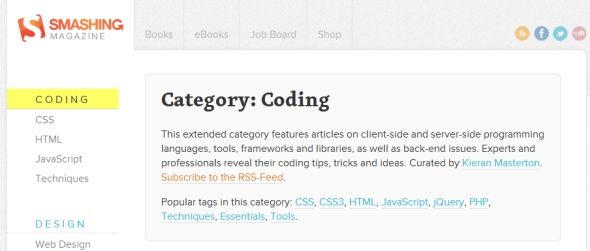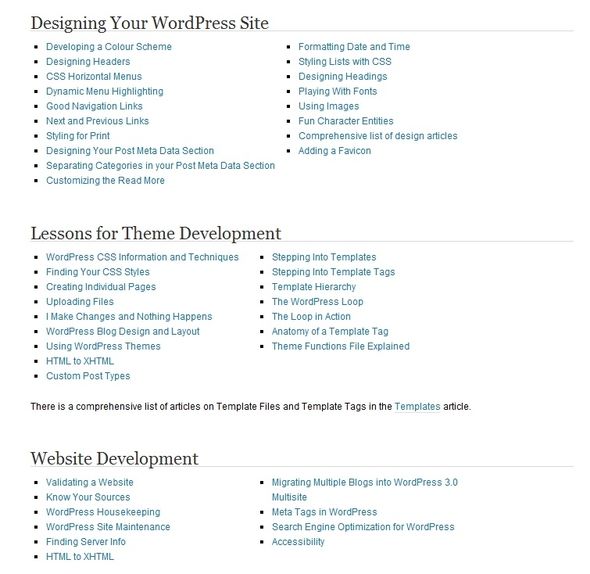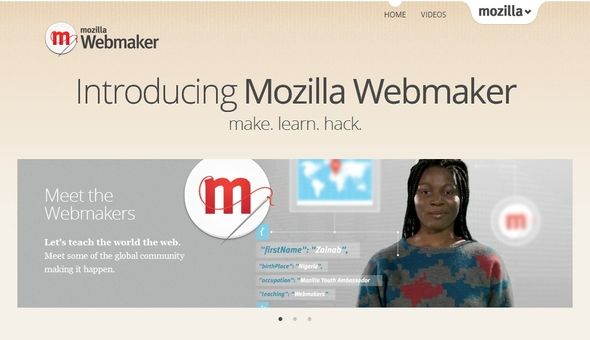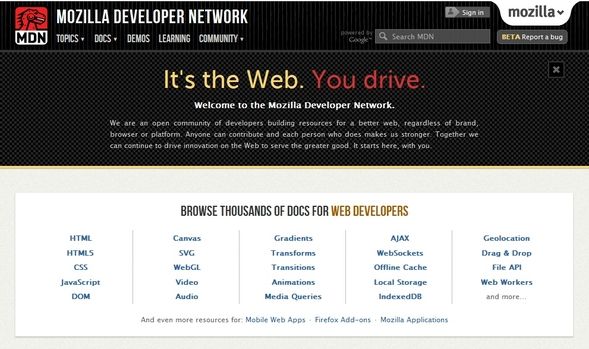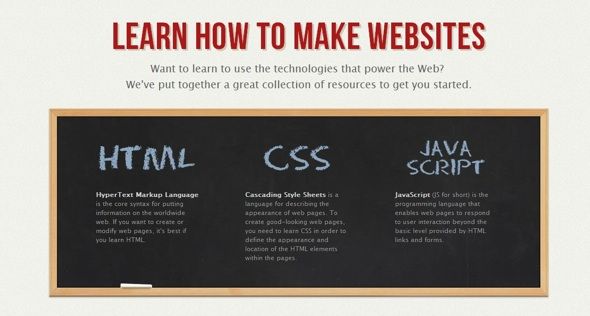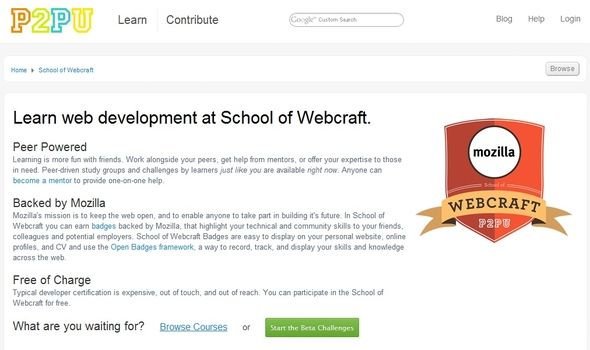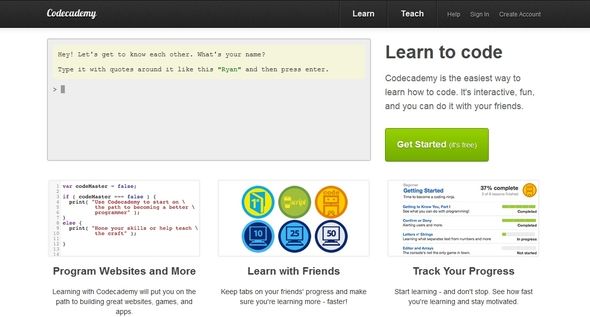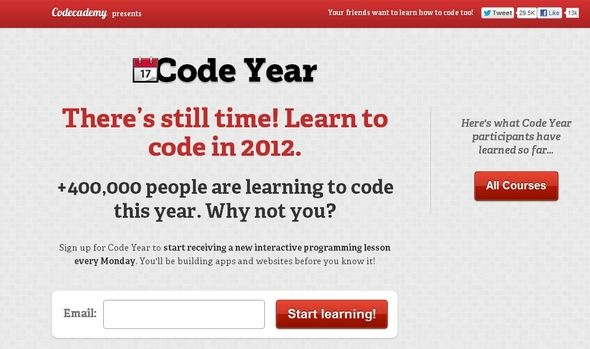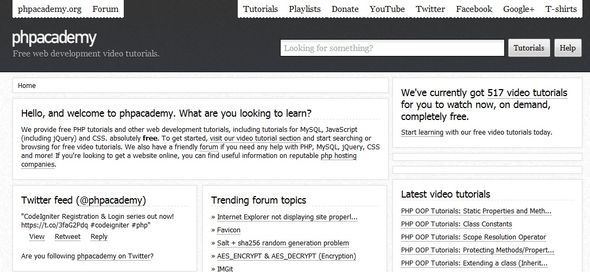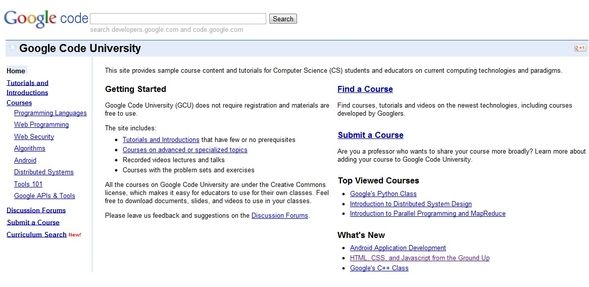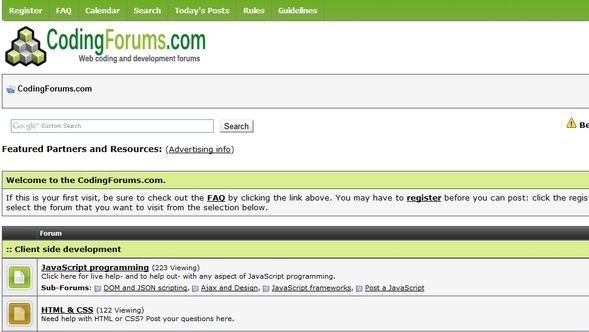Coding. A topic that is avoided by many. Why? Probably because it seems like an impossible and unreachable goal to attain. It is a difficult skill, but if you have the purpose to learn to code, there’s no better time than now. There are an abundance of free resources and tools, all of which are available online. Sure you could take some courses on the topic at a nearby community college, and you might still want to. However, if you’re on a budget, have limited time or just simply want an additional source of quality education, these websites can be a tremendous help.
The topic of coding has been covered throughout MakeUseOf, from what languages to learn for software development to teaching your kids how to code. Bottom line is, there are several great tools out there in addition to this list, but these are some of the best.
Smashing Magazine
Smashing Magazine is a company focused on coding and web development, covering topics of techniques, individual coding languages, mobile, design, graphics and WordPress. Though it is quite well-known for it’s electronic and printed books, it also provides a plethora of information on the web.
WordPress Codex
Although not entirely focused on only coding, this resource provided by WordPress offers some excellent tools in the languages of HTML, CSS and others. It is possible to build your own website without any knowledge of code, however you’re likely going to want to make some tweaks and changes here and there, which is where it’s nice to know some code. Thankfully, you don’t have to know it all if you simply use this resource from WordPress.
Mozilla Webmaker
Mozilla Webmaker has actually recently been featured in an article of it’s own, by our very own MakeUseOf Editor, Saikat Basu. Here he goes into depth with all of the features, tools and resources that Mozilla provides to those striving to learn code and easily edit it.
Mozilla Developer Network
Another Mozilla resource is the Mozilla Developer Network, which seems like it would be advanced and hard for beginners to understand, and some of it is, but there are also parts that can be of great help and assistance. I recommend just taking a look around the site, but there are two places that I think you should be focused on and that may help you. Those are the Docs page and a page where you can learn how to make websites.
Peer-to-Peer University: School of Webcraft
Two great things about Peer-to-Peer University is that it is free and peer-driven. Ironically, Mozilla sponsors the “webcraft” section of the site, but otherwise it is not affiliated with Mozilla. There are other non-coding related sections on the site as well, but the School of Webcraft is an excellent place to learn what’s behind the making of the web. The nice thing about P2PU is that since it’s peer-driven, you can get help from those around you along the way. If you are on the more advanced side, you can actually be a mentor to others who are less-knowledgeable and trying to learn.
Codecademy
Codecademy has become one of the most popular code-learning sites. It’s easy-to-use interface combined with rewards badges and understandable directions have made it a popular choice among coders of all levels. Just like P2PU, you can learn or teach, so once you have a solid understanding yourself, you can pay if forward to others who are seeking the same knowledge. Codecademy focuses on JavaScript Fundamentals, Python, Web Fundamentals and JQuery.
It also has another neat section of the site called, Code Year, which has been covered on MakeUseOf by our staff writer, Bakari. Once you go to the Code Year website, you can sign up to receive a interactive coding lesson every Monday. You can also click on the big red button titled All Courses and check out the other parts of Code Year.
PHPAcademy.org
If you’re a visual learner, and by that I mean you learn by watching videos, PHPAcademy will be a very beneficial addition to your coding curriculum. There are videos on practically everything, but obviously it focuses on PHP for the most part. The videos are quite thorough and because of that, they’re quite long as well, ranging anywhere from eight to twenty minutes… still shorter than your college class lecture (and likely more interesting too). Along with the link in the subtitle, here is a direct link to their many video courses organized into playlists on YouTube.
Google Code University
This article wouldn’t be complete without Google Code University, and neither would MakeUseOf, which is why it has it’s own article on here as well. Google has created an excellent free source of knowledge that you would have to pay top dollar anywhere else. Many people who use it are likely already paying top dollar so that they can have that degree. But while they’re pursuing their degree, Google Code University can accompany what they are learning and provide more practice and education in the process. Maybe you’re one of these people, or maybe you just want to teach yourself completely on your own. For all situations, Google Code University is an awesome asset to help you learn the ropes of coding. One section I highly recommend starting at is “Google: HTML, CSS and Javascript from the Ground Up.”
W3C Wiki Page
W3C has a ton of information and as a beginner, I would not recommend trying to take everything from their site in, although it is a great resource. However, their wiki page on the other hand contains all the recent standards. Dev.Opera has a similar page, but announced in April of 2012 that it donated it to W3C to be updated by their community. This would be a tool that once you’ve gotten the basics of coding down, you start studying and understanding the web standards. Take one thing at a time, don’t take it all in at once, but I do recommend keeping this site along side the others as you gain more and more coding skills and knowledge.
CodingForums.com
Similar to most technical industries, you never stop learning when you’re a coder. And since this is the case, it’s nice to have a community dedicated to answering questions. That is what CodingForums.com is all about. As you go through the different courses of the sites that I’ve introduced you to, you’ll have questions. If the site has a community (most do), then it’s nice to inquire with them. But it’s also nice to just get a second opinion, or get input from a different source.
Conclusion
Along with this article, I recommend you check out a similar MakeUseOf article featuring five other resources to help you learn how to code. The biggest thing with these tools is to use them consistently and not psych yourself out that you can’t code before you even start. If you are even remotely interested, these sites are a much cheaper, in fact free, way of seeing if it really interests you and how good you are. But they aren’t only “testing out the waters” websites, they can be full-blown educational tools, and some even can equal the same amount of knowledge and skill that you’d get from a college degree.
Have these sites helped you in the past to learn to code? If you don’t know how, are you likely to give it a try with these resources to help you along the way?
Image Credit: Hand Writing Code via Shutterstock


